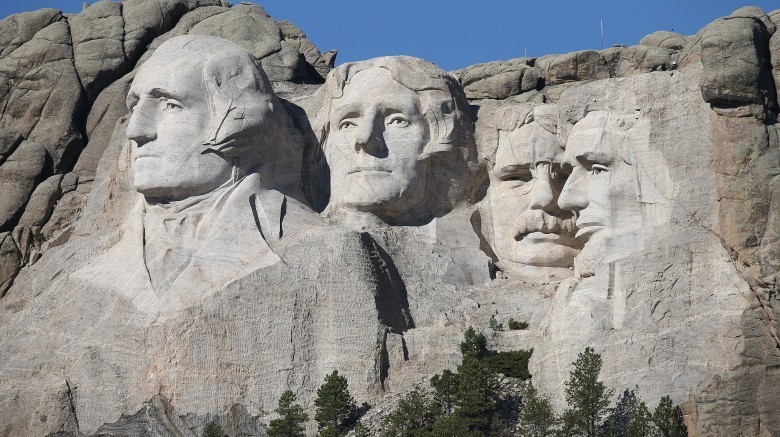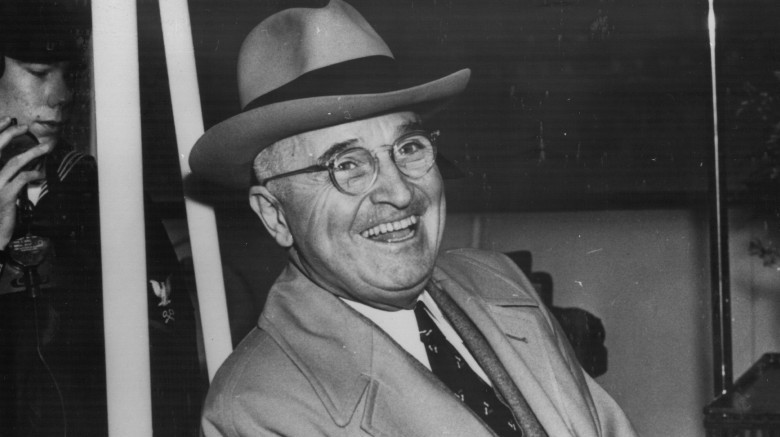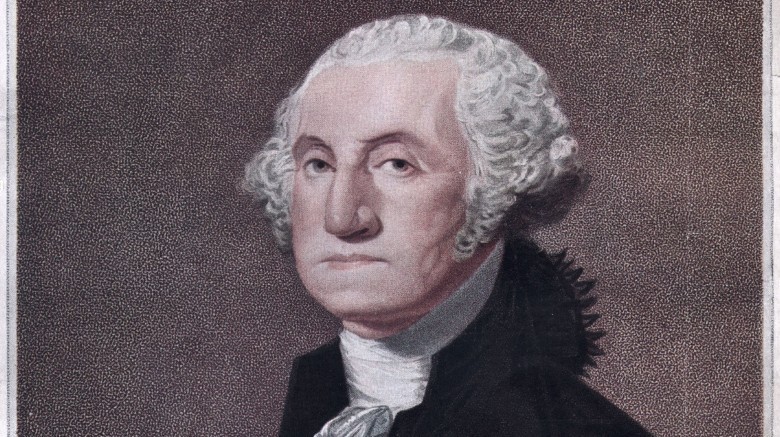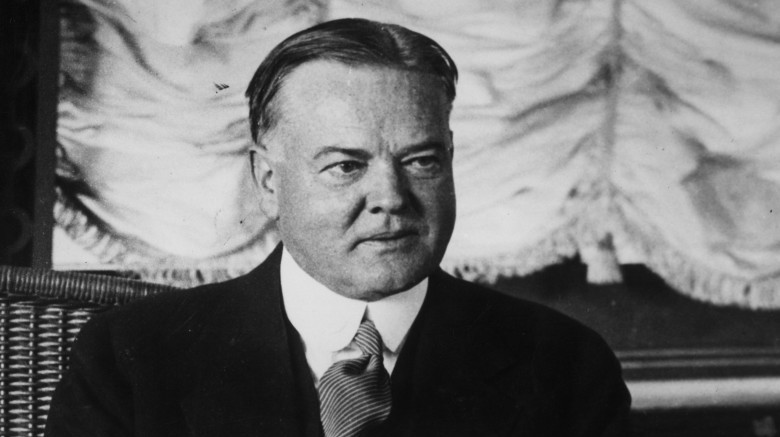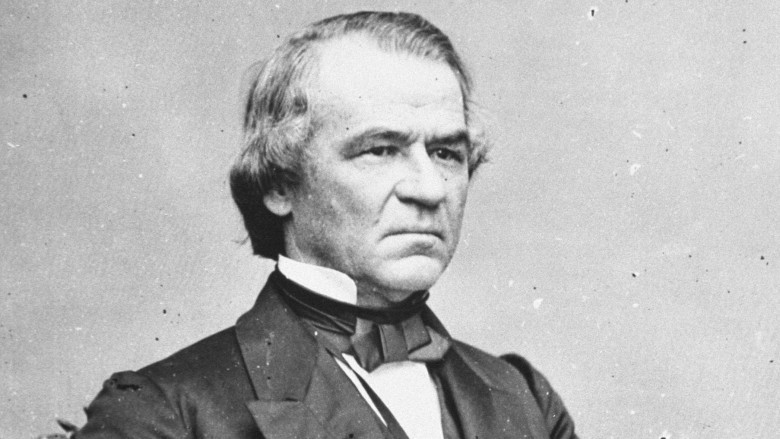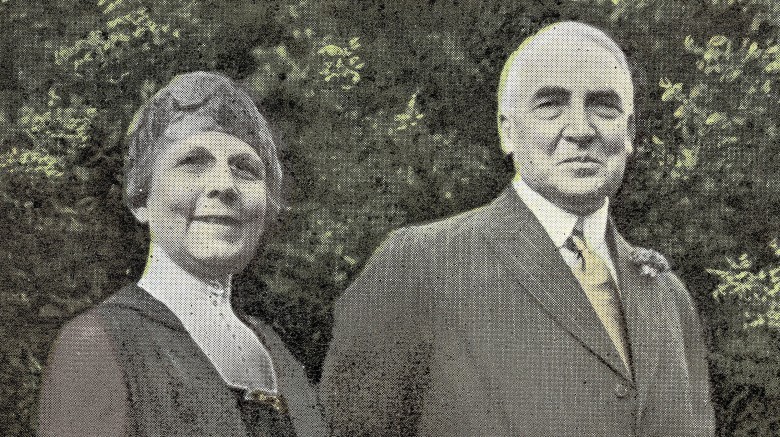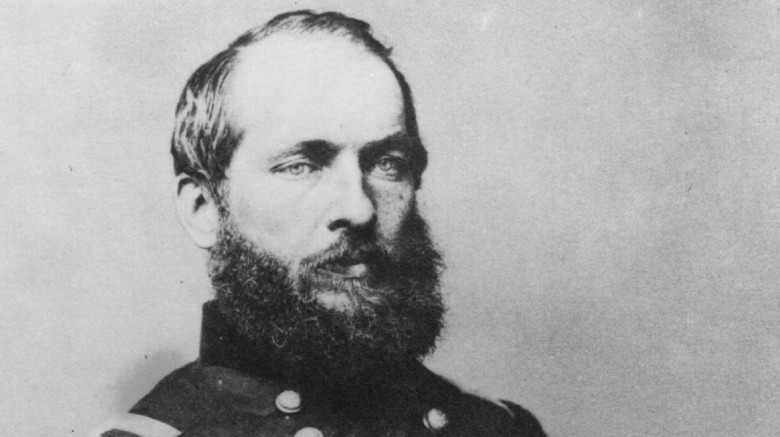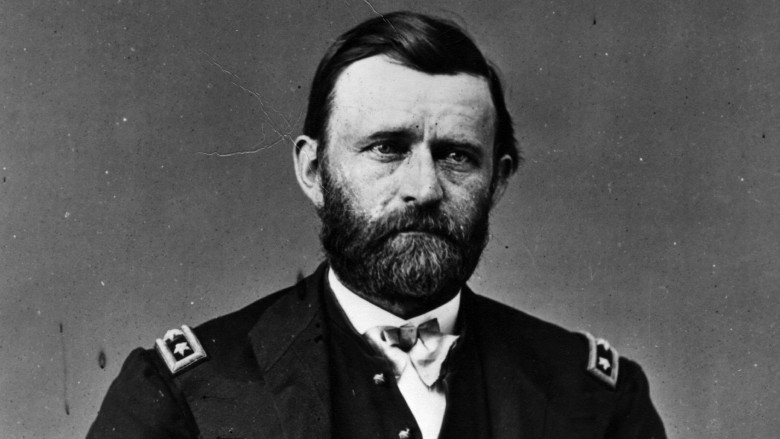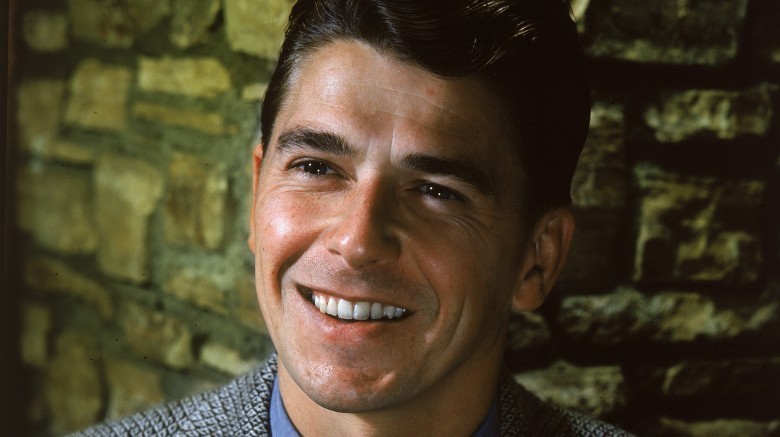What These Presidents Actually Wanted To Be When They Grew Up
A lot of kids dream of becoming president when they grow up, but some of America's greatest leaders had different childhood aspirations. Here are a few former presidents whose American dreams were not what you'd expect.
Harry Truman had musical ambitions
If Harry Truman's mother had gotten her way, her son would have been a world-renowned concert pianist rather than a wartime U.S. president. Harry himself loved the piano and considered music his biggest passion. He started daily piano lessons at the age of 10, first under his mother and then under a Kansas City teacher named Mrs. E.C. White, who had studied with European master teachers. Harry rose every morning at five to practice for two hours and continued his lessons until the age of 15. His longtime friend, Charlie Ross, recalled, "He didn't lack spunk when he braved the jeers of the boys to go regularly to his music teacher, carrying his music roll." When it came to tickling the ivories, it looks like there was no slowing Truman's roll.
The problem was that he knew he wasn't good enough to become a serious musician, so he pursued politics instead. He joked at one point, "My choice early in life was either to be a piano-player in a whorehouse or a politician. And to tell the truth there's hardly any difference." Though he chose to be a politician, he still made time for his music whenever he could, including, famously, for actress Lauren Bacall (and who wouldn't make time for such a total femme fatale?). Both Bacall and then-Vice President Truman visited the National Press Club in February of 1945, which was a place for soldiers to get free hot dogs and beer on Saturday afternoons. Politicians weren't allowed to speak for more than two minutes, so Truman naturally gravitated to the piano in the ballroom. Bacall's press agent suggested she jump on top of the piano, and the pair posed for pictures while Truman played.
The incident wound up not only starting a long-time friendship between Bacall, husband Humphrey Bogart, and Truman, but also inspired the current Truman Lounge, a members-only room at the club which still features a piano. "If you look closely at it and at the picture, you'd say it's not the same piano," said Gilbert Klein, the chairman of the press club's history committee. "But I'm told that so many women got on top of that piano after that picture was taken that the cabinet collapsed." He may not have been a hit in concert halls, but it sounds like Truman sure was a hit with the ladies.
George Washington surveyed the land
Before he was America's first president and a rapper character in Lin-Manuel Miranda's hit Broadway musical Hamilton, George Washington was just a shy, talented math geek. His father Augustine died in 1743, leaving wife Mary to raise 11 year-old George and his two half-brothers by herself. Mary wanted to send George to a fancy boarding school in England (no, not Hogwarts), but the family didn't have enough money. Unfortunately, that meant George's formal education never went much past elementary school. Who knew our first president had something in common with Billy Madison?
Anyway, George developed an aptitude for math in his teens and found himself under the watchful eye of prominent Virginia landowner Lord Fairfax, thanks to an introduction from George's older half-brother, Lawrence. Fairfax invited the 16 year-old to join a team on a month-long trip to survey a section of the Blue Ridge Mountains. It was George's first foray into surveying and marked the start of a life-long friendship with the Fairfax family, which gave him powerful political and societal connections. Lord Fairfax even made George an offer he couldn't refuse: a chance to become a county surveyor in 1749 when the future president was just 17 years old.
After his brother Lawrence died from tuberculosis the following year, George lobbied to take his place as the commander of the local militia, and his military career was born. He wound up using his surveying skills again during the French and Indian War, drawing on his knowledge of the backcountry to draw propaganda maps he personally delivered to the French, which insisted they retreat from the Ohio Valley. This led to the very first skirmish in 1754. Even in the 1700s, people knew the best way to start a fight was over map directions.
Washington is credited with 199 surveys during his lifetime, many of which are now part of the Library of Congress. As president, Washington created the office of the Geographer of the Army in 1777, appointing Robert Erskine to do a thorough survey of the country, which produced the first official maps of the United States during the Revolutionary War. From mapper to rapper, Washington was pretty dope.
Herbert Hoover was into rocks
The future 31st President of the United States was orphaned by the age of nine and sent to live with an uncle in Oregon, where he struggled with school, save for mathematics. Determined to attend the newly founded Stanford University in its inaugural 1891 class, Hoover studied hard, but again failed every portion of the entrance exam except for math. He wound up being admitted on a probationary basis, and the once-shy Hoover finally found his calling: geology.
Hoover spent several summers as a student assistant working on geological survey teams in Arkansas, California, and Nevada under the tutelage of noted geologist and Stanford professor John Casper Branner, who encouraged Bert (as he was known by friends) to change his major to geology. Hoover flourished at Stanford, becoming a fine and popular student. But a love of rocks wasn't the only love Hoover found in geology class. He also met his wife, Lou Henry, who was Stanford's first female geology major. Sounds like she found a nice rock, too — one for her ring finger.
Hoover's love of rocks wound up turning him into a multimillionaire. After he graduated from Stanford in 1895, Hoover took a job with a British mining company, and by the time he turned 27, he was one of its four partners. He started his own mining consulting business in 1908, and within a few years, he was incredibly wealthy from his businesses, owning a silver mine, and writing a textbook on mining engineering. In fact, he had businesses on every continent except Antarctica. Not bad for a shy, math-averse orphan.
Andrew Johnson could fix your suits
Mark Twain once said, "Clothes make the man. Naked people have little or no influence on society." In this case, clothes definitely made the 17th president of the United States. Andrew Johnson grew up in poverty in North Carolina, the son of an inn porter and seamstress. Johnson never formally attended school, instead becoming an apprentice in a local tailor shop at the age of 14. But the young apprentice ran away for two years, traveling the South, learning his trade, and earning a hefty bounty on his head in exchange for his return. Johnson wound up returning to North Carolina of his own accord in 1826, and before he left to establish his own tailor shop at age 17 in Greenville, Tennessee, a local customer gave him a book of speeches if he promised to learn to read it.
Thankfully, Johnson found a great tutor in new wife, Eliza, who, fittingly, was the daughter of a shoemaker in Greenville. Eliza told a friend it was love at first sight, and the pair married in 1827. Eliza helped Andrew learn to read, write, improve his math skills, and invest in property. As he sewed, Andrew hired other readers to teach him while he worked. Soon, the shop became a place for local men to come and discuss politics. Along with the book of speeches, these discussions sparked Andrew's interest in politics, and, at his friends' urging, he ran for Greenville's Board of Alderman in 1834, winning a seat. After that, his future in politics was pretty much all sewn up.
Warren G. Harding was a newspaper man
Though widely considered one of America's worst presidents (not to mention one of the biggest philanderers), Warren G. Harding was quite an enterprising, brilliant young man. The oldest child of a doctor and midwife, Warren had a fairly idyllic childhood, learning to read and write in a one-room schoolhouse and spending the rest of his time swimming and playing outdoors. He entered Ohio Central College at age 14 and flourished as the editor of the campus newspaper. Upon graduation in 1882, Harding didn't really know what he wanted to do with his life, so he tried his hand at teaching, law, and insurance sales before he took a job as a journalist at a local newspaper. Two years later in 1884, Harding and two friends raised $300 and bought the defunct Marion Star newspaper.
Harding and his friends revitalized the Marion Star, and within five years, it was a profitable paper once again. But it took a lot of hard work. "I always have had a lot of respect for him as an editor," admitted former Marion Star reporter Sherry Hall, "because even physically, it was tough to put out a newspaper. He used an elbow press. He was hand-cranking the press. In those early days, they're it: writing the story, setting the type, operating the machinery. If it breaks, taking a wrench out to keep themselves in business. It would have been a really tough job."
But Harding persisted, and so did his future wife, divorcee Florence DeWolf, who relentlessly pursued the young newspaper man. After they married in 1891, "Flossie," who came from a wealthy family, helped Warren with the business end of the newspaper. Within ten years, the Marion Star had become a favorite for Ohio politicians because of Harding's unbiased reporting. With Flossie's encouragement, Harding became involved in politics while still overseeing the newspaper. Hall notes, "He said once someone asked him, 'Why newspapering?' and he said, 'It combines my two passions, writing and the opportunity to affect change.'" Considering his track record, maybe he should have stuck to the press instead of the presidency.
James Garfield had sea-legs
Young James Garfield had quite the taste for adventure. Growing up on a farm in Orange, Ohio, outside of Cleveland, James was an active, outdoorsy kid. He took after his late father, Abram, who was something of an amateur wrestler. Rather than doing farm chores, James preferred reading adventure novels and fist-fighting, much to his mother Eliza's dismay. He dreamed of becoming a sailor. Sounds like he might have made a great Dread Pirate Roberts.
Anyway, at age 16, James left home to try his hand as a sailor on Lake Erie, but he was turned away. Instead, he found work on canal ships that traveled between Cleveland and Pittsburgh. One night, he fell overboard while everyone else was asleep. Unable to swim, Garfield nearly drowned, but was able to pull himself back onboard the ship using a rope that had somehow gotten wedged in a crack on the deck. He saw this as a miracle, later saying, "God saved me for my mother and for something greater and better than canalling." He returned home not long after and immediately got violently ill with malaria. His sailor aspirations all washed up, he took his mother's life savings of $17 and enrolled in school once he was well enough, vowing to put brains before brawn for the rest of his life.
Ulysses S. Grant horsed around
Though Ulysses S. Grant is perhaps best known for boldly leading the Union Army in victory against the Confederacy during the Civil War, the 18th president of the United States was a shy child. His father was a tanner, skinning animals and turning them into leather goods. Ulysses often worked alongside his father, but he couldn't bear the smells of the animal carcasses boiling in chemicals all around him. Who could blame him?
Nicknamed "Useless" at school due by other children who mistook his shyness for stupidity, Ulysses proved to be anything but when it came to working with horses.Ulysses' father often asked him to care for the family horses on the farm. It was a solitary task the young boy enjoyed, preferring the company of the animals to most people. He was especially good with the wilder ones. It was a skill he carried with him into the military, where he quickly became known as one of the fastest, best riders in the entire Army. Corporal Harrison Strong remarked, "He was a great horseman and sat his horse as if he were part of the horse, all one figure. There was never a movement of any description that was not masterful and graceful. No one ever saw him disturbed in any way, that is, jolted or taken unaware on horseback, whether he was going fast or slow. He was a born horseman." Too bad he got saddled with leading the country during the Reconstruction, one of the most difficult and contentious periods in American history, which surely cut into his riding time.
Ronald Reagan announced sports
Most people know Ronald Reagan was a popular actor during the Golden Age of Hollywood, but that wasn't his first display of talent. Growing up in Illinois, young Ronnie was an active kid and adventure-seeker who took after his devoted, religious mother rather than his alcoholic father. Ronnie spent a lot of time outdoors swimming, running, and once even narrowly escaped being killed by a train à la Stand By Me. While he loved performing from an early age, mostly in church skits, Ronnie especially took to athletics. He spent six summers during his teen years as a lifeguard at Lowell Park on the banks of the Rock River. An accomplished swimmer, Reagan reportedly saved 77 lives during his time as a lifeguard. In high school, he played football and basketball, excelling in both.
After he graduated high school in 1928, Reagan entered Eureka College on a partial football scholarship and worked as a lifeguard and swimming coach part-time to pay the rest of his tuition. A mostly average student, Reagan was involved in a number of clubs, served as student council president, and, of course, acted in many plays. His affinity for athletics and clear speaking voice wound up earning him his first job after college as an announcer for WOC in Davenport, Iowa, where he earned $10 for every game he announced. He quickly realized he had a knack for broadcasting and landed a job two years later at WHO, an NBC radio station in Des Moines. He is said to have been especially great at recreating "play-by-play accounts" of Chicago Cubs baseball games he hadn't seen based solely on the game-in-progress telegraphs he received. In 1937, Reagan traveled to California to cover the Chicago Cubs' spring training session and met a Hollywood agent who asked him to do a screen test for Warner Bros. The studio offered him a $200-a-week contract on the spot, so it sounds like that screen test was a total home run.
